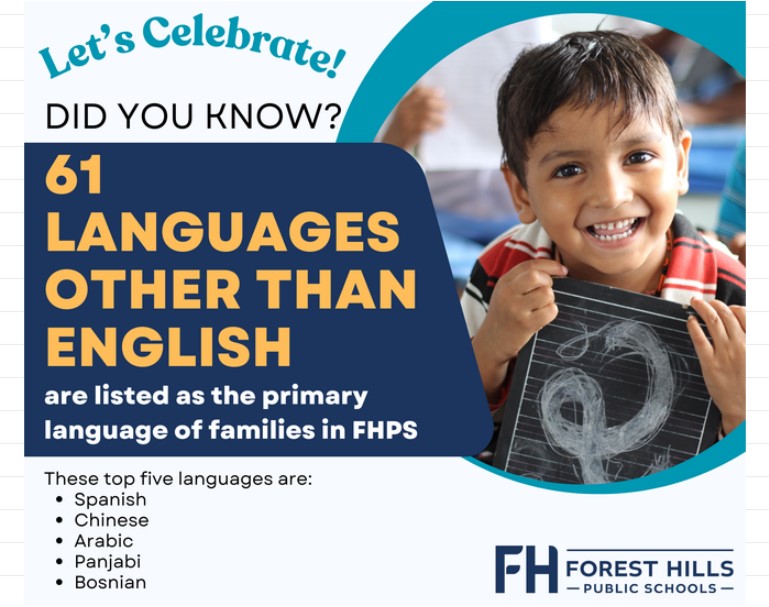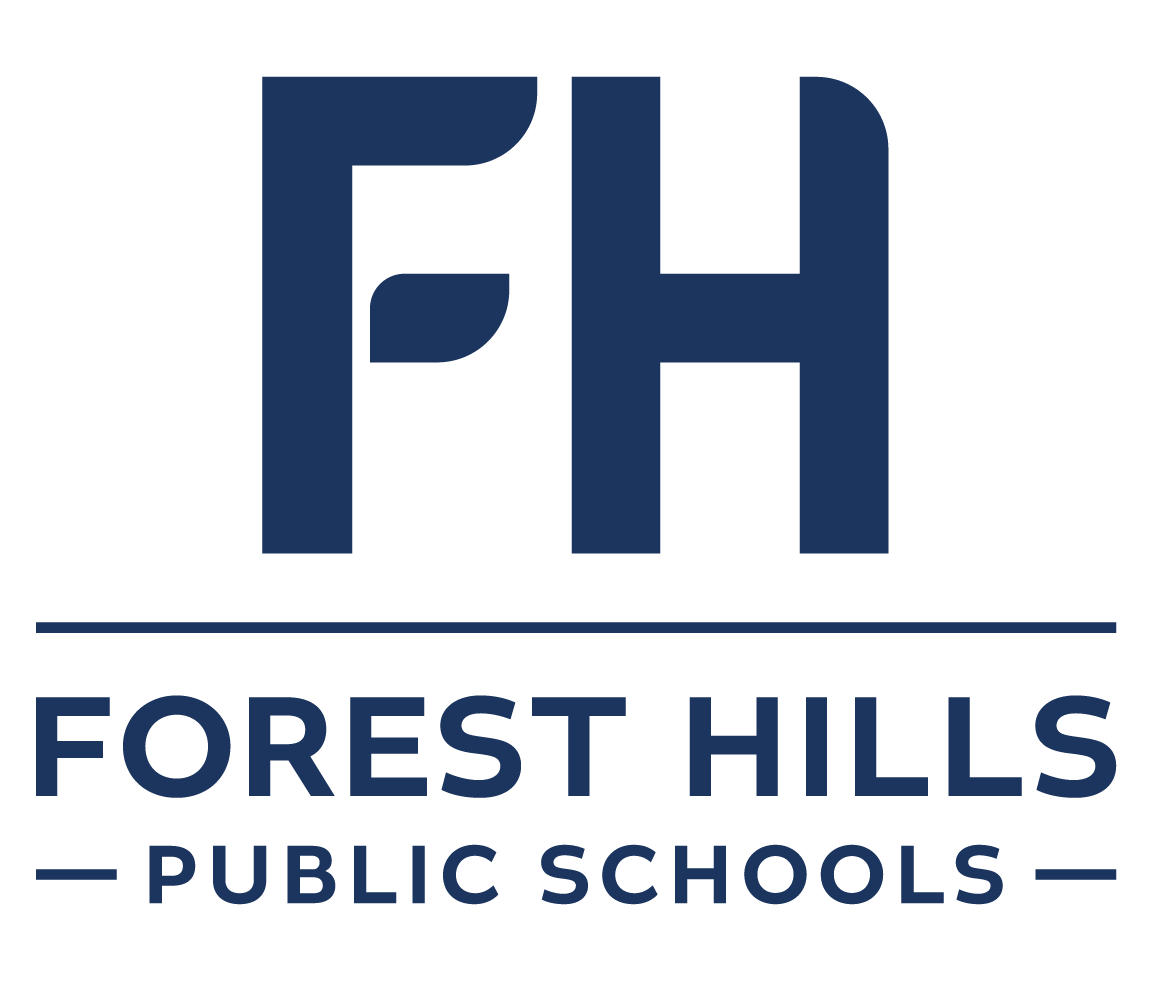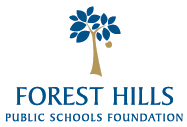Multilingual Learner (MLL) Definition
“Multilingual learner” refers to any child learning and developing two or more languages as they navigate their home, community, and early care and education (ECE) settings. Children’s experiences, environments, language exposure, and opportunities to use language play critical roles in their early language development. While all children need support, guidance, and positive interactions with adults, multilingual children need additional attention to their linguistic needs and experiences as they develop their home language(s) and additional languages. Supporting multilingual children’s language development is critical for their future success in K-12 systems. These are commonly called English as a Second Language (ESL) or Multilingual Learner (MLL) services.

Forest Hills Public Schools seeks to ensure that all multilingual learners achieve the English language proficiency needed to acquire the knowledge, skills, and experiences necessary to build meaningful and productive lives.

MLL Enrollment & Programming
Identification Using Home Language Survey Questions:
Newly-enrolled students who may be eligible for English as a Second Language (ESL) services are identified through the Home Language Survey questions on FHPS enrollment forms.
English Language Proficiency Assessment:
Certified MLL staff will administer the State of Michigan’s English Language Proficiency Assessment (WIDA Screener) in the student’s home school. This test assesses the child’s abilities to listen, speak, read, and write in English.
Permission to Provide Services:
A letter communicating the student’s WIDA Screener scores is sent to the parent/guardian. This letter informs the family of their student’s assessment results and indicates if they are eligible for ESL services.
Annual Proficiency Testing:
Every spring, MLL students will be reassessed with the WIDA ACCESS for ELL test (through the State of Michigan) to measure English Language proficiency. Results of this assessment are sent home to families the following fall. The results are also used to determine which MLL students will continue to be eligible to receive ESL services and which may be exited and monitored.

MLL Program Exit Criteria
Students eligible for exiting MLL services are identified during the summer months when the annual WIDA ACCESS/WIDA ALTERNATE ACCESS results are released. Students eligible for exiting include all K-12th grade MLL students who have met a WIDA overall score of 4.8.
Formerly English Learners (FEL)
The MLL department provides principals with a detailed list of student assessment results, as well as a list of exited students. MLL program staff and building staff participate in quarterly monitoring to ensure exited students perform satisfactorily. The state requirement is that FEL (Former English Learner) students be monitored for four years after exiting the MLL program.
MLL Program Re-entry
When a school’s monitoring of an exited MLL student indicates that a persistent language barrier may be the cause of academic difficulty because general education and remediation services have proven inadequate to accelerate the student’s learning, students will be rescreened to determine if there is a persistent language barrier and will offer additional language assistance services as needed.
Complaint Procedure
MLL student learner concerns and/or complaints may be addressed to:
- Building principals
- A call may also be made to the FHPS instruction office at 616-493-8806
Refusal of Services
Parents/guardians who choose for their child not to participate in MLL programming must complete a waiver (available on the district website) and return it to the MLL department or their child’s home school. These students will not receive services. However, under federal law, they must still be administered the annual WIDA ACCESS for ELLs proficiency test each spring until they meet exit criteria.
Program Evaluation
A district evaluation committee will meet each spring to evaluate the MLL program and assess the program’s effectiveness, resources, and staff needs. The committee will recommend program adjustments and improvements to the superintendent, assistant superintendent of instruction, and the board of education.
WIDA ACCESS for ELLS 2.0
The WIDA ACCESS for ELLs is an annual assessment that examines students’ levels of English language proficiency in both social and academic language. Social language is used to communicate for everyday purposes. Academic language, or the language of school, is used to communicate the content of language arts, mathematics, science, and social studies.
- Level 1: Entering- Limited or no understanding of the English language.
- Level 2: Emerging– Understands short phrases or sentences.
- Level 3: Developing- Understands expanded sentences and developing social and academic language.
- Level 4: Expanding- Good language skills, but may require support in academic areas or when a high degree of literacy is required.
- Level 5: Bridging- Knows and uses social and academic language.
- Level 6: Reaching- Knows and uses social and academic language to the highest degree.








